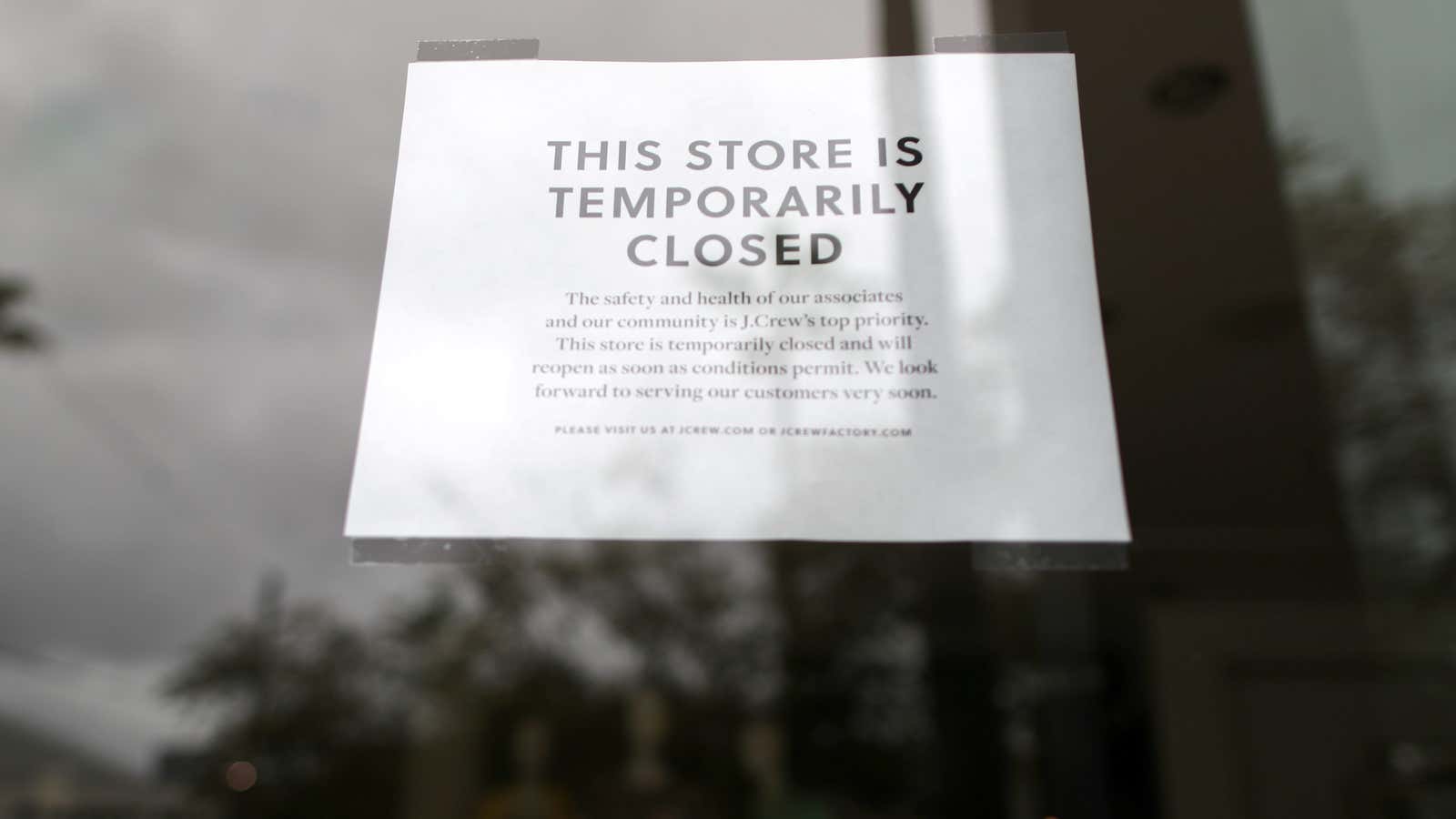On April 13, California-based denim maker True Religion filed for bankruptcy, citing the strain on its finances from the ongoing pandemic.
JCPenney today skipped a $12 million loan payment and has been reportedly considering bankruptcy, as has Neiman Marcus. At Macy’s, no debt restructuring is imminent, sources told Reuters, but the company has hired advisors as it explores ways to manage that debt.
With large numbers of stores closed and shoppers prioritizing necessities, sales at many US retailers selling non-essential goods have plummeted. The situation is putting tremendous pressure on fashion companies, including many that were already suffering before the outbreak, increasing the risk of bankruptcies.
According to new data from the US Census Bureau, total US retail sales were down 6.2% (pdf) in March compared to last year. But the picture was even bleaker for certain types of businesses. Department stores saw their sales drop 24%, and sales for clothing and accessory retailers plunged 51%.
While sales dry up, most companies still have big bills to pay, such as commercial rents. Many have responded with cost-cutting measures, such as furloughing staff and reducing any expenses they can, including holding off on rent payments. Large fashion companies also tend to have revolving lines of credit they can pull from and pay off as they go. They normally use them to finance expenditures such as a build-up of inventory ahead of the holiday season, but a number are turning to them now to help with the economic slowdown.
Still, how companies will ultimately fare likely depends on a mix of how much cash they have available and when their biggest loans mature, meaning full payment is due.
“You have a wide spectrum of apparel retailers that have very solid liquidity positions, assuming that stores open up in the next couple of months,” said David Silverman, senior director at credit ratings agency Fitch. “Even if they have debt, that debt is manageable or maturities are far away. Levi’s is an example of that. On the other hand, you have some—I’ll use the word ‘unlucky’—companies, which might have reasonable liquidity in the near term, but might have upcoming maturities that could make things difficult in terms of refinancing. Land’s End is an example of that.”
Land’s End’s nearest loan comes due next April, according to a March report by Fitch. J.Crew also has a large loan maturing next year, and its plan to raise money through an IPO of its Madewell brand now seems to be on hold. Neiman Marcus has a sizable loan to finish repaying this year. Even before the full amounts are due, companies have to make interest payments. So far, lenders don’t seem to be letting them off the hook.
Meanwhile, companies with limited lines of credit, including many small- and medium-sized businesses, could have trouble paying their current expenses, Silverman said.
The $2 trillion coronavirus aid package the US congress recently passed does include emergency grants and a loan program for small businesses. But it’s already backlogged and getting low on funds.
For large corporations, it provides tax credits and federal loans. But the loans need to be paid back, which makes distressed retailers risky borrowers, and little of the money is likely to go to them.
The longer the crisis carries on, the greater chance more retailers will falter. As of now, Fitch expects discretionary retail to be down well into 2021.
This story has been updated with detail on JCPenney skipping a loan payment.
